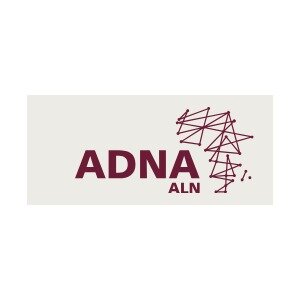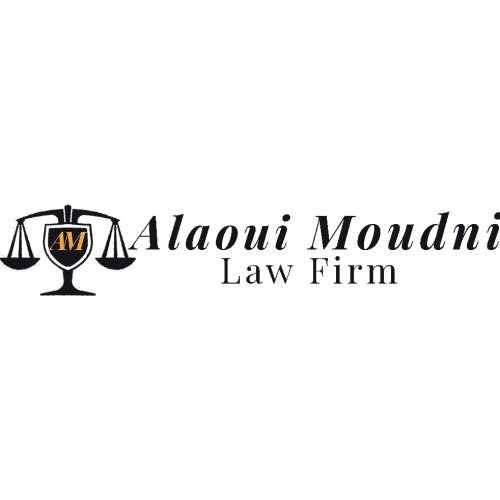Best International Trade Law Lawyers in Casablanca
Share your needs with us, get contacted by law firms.
Free. Takes 2 min.
List of the best lawyers in Casablanca, Morocco
About International Trade Law in Casablanca, Morocco
International Trade Law in Casablanca, Morocco, concerns the regulations and legal frameworks that oversee trade between businesses and nations. As a strategic economic hub in North Africa, Casablanca plays a critical role in facilitating trade across the globe. The city serves as a gateway for businesses aiming to enter the African market, which positions it at the forefront of international trade transactions. International Trade Law encompasses a variety of areas such as import and export regulations, trade agreements, customs laws, and dispute resolutions. The legal landscape in Morocco aligns with various international treaties and agreements, providing a robust framework for businesses engaged in cross-border trade.
Why You May Need a Lawyer
Seeking legal assistance in the realm of International Trade Law is vital for several reasons:
- Complying with Regulatory Requirements: Navigating through the regulatory requirements for imports and exports in Morocco can be complex. A lawyer can ensure compliance with local and international laws.
- Negotiating and Drafting Contracts: Legal expertise is crucial when drafting or negotiating trade contracts to protect your interests and mitigate potential risks.
- Resolving Trade Disputes: Lawyers can assist in resolving disputes with international partners, whether through mediation or litigation.
- Understanding Tariffs and Duties: Knowledge of applicable tariffs and duties is necessary to avoid legal pitfalls and ensure cost-effectiveness in trade operations.
- Advisement on Trade Treaties: Expertise in international treaties like Free Trade Agreements (FTAs) can be invaluable for businesses seeking to expand their markets.
Local Laws Overview
Understanding the local legal environment is critical for successful trading. Key aspects of international trade law in Casablanca include:
- Customs Code: Governs the import and export procedures, including tariff structures and necessary documentation.
- Import and Export Regulations: Detailed laws regarding the types of goods that can be traded, sanitary standards, and certification requirements.
- Investment Laws: Designed to encourage foreign investment while protecting local businesses, these laws also affect international trade agreements.
- Dispute Settlement Mechanisms: Comprehensive legal frameworks for resolving trade-related disputes through arbitration or commercial courts.
Frequently Asked Questions
What is the role of customs in international trade in Morocco?
Customs authorities in Morocco are responsible for enforcing laws on imported and exported goods, ensuring the correct duties and taxes are paid, and facilitating legitimate trade.
What documents are required for importing goods into Morocco?
Importing goods typically requires a commercial invoice, a bill of lading, a certificate of origin, and a packing list. Additional documentation may be needed depending on the product type.
How can I resolve trade disputes in Casablanca?
Trade disputes can be resolved through negotiation, mediation, or arbitration. The Commercial Court in Casablanca can also be approached for legal resolutions.
What are Free Trade Agreements, and how do they affect business in Morocco?
Free Trade Agreements (FTAs) remove trade barriers between member countries, allowing for easier movement of goods and services. Morocco's FTAs with countries such as the EU and the US provide significant opportunities for businesses.
What are some common barriers to entry for international businesses in Morocco?
Common barriers include complex regulatory environments, language differences, and the need for local partnerships or staffing mandates.
Are there restrictions on the types of goods that can be traded?
Yes, there are restrictions on certain items such as pharmaceuticals, agricultural products, and sensitive technology, which require special permits and clearances.
Can foreign companies own businesses outright in Morocco?
Yes, foreign entities can own businesses entirely but it may vary by sector. Specific industries may require local partnerships or have percentage ownership limits.
What impact do sanctions have on trade in Morocco?
International sanctions can affect businesses by limiting trade with certain countries. It is important to stay informed about such sanctions to avoid legal issues.
How does Morocco handle intellectual property rights in trade?
Morocco has strong intellectual property laws to protect inventions, trademarks, and copyrights, facilitating secure trade operations.
Can businesses benefit from investment incentives in Morocco?
Yes, Morocco offers incentives such as tax exemptions, land grants, and financial support for projects that bolster certain sectors like renewable energy and infrastructure.
Additional Resources
Several resources and organizations can assist you with International Trade Law in Casablanca:
- Morocco's Ministry of Industry, Trade, & Green and Digital Economy: Offers information and support for trade and industry.
- Casablanca Chamber of Commerce, Industry and Services: Provides resources for local and international businessmen.
- Moroccan Investment Development Agency (AMDI): Offers guidance and support to foreign investors.
- Moroccan Customs Authority: Source for updates on customs regulations and procedures.
Next Steps
If you need legal assistance in International Trade Law, consider taking the following steps:
- Research and contact qualified legal professionals who specialize in International Trade Law in Casablanca.
- Prepare all relevant documentation and information about your trade activities before consulting with a lawyer.
- Consider engaging with local trade organizations to expand your network and gain additional insights into the trading environment.
- Stay updated on legal changes and international trading policies that may affect your business.
Lawzana helps you find the best lawyers and law firms in Casablanca through a curated and pre-screened list of qualified legal professionals. Our platform offers rankings and detailed profiles of attorneys and law firms, allowing you to compare based on practice areas, including International Trade Law, experience, and client feedback.
Each profile includes a description of the firm's areas of practice, client reviews, team members and partners, year of establishment, spoken languages, office locations, contact information, social media presence, and any published articles or resources. Most firms on our platform speak English and are experienced in both local and international legal matters.
Get a quote from top-rated law firms in Casablanca, Morocco — quickly, securely, and without unnecessary hassle.
Disclaimer:
The information provided on this page is for general informational purposes only and does not constitute legal advice. While we strive to ensure the accuracy and relevance of the content, legal information may change over time, and interpretations of the law can vary. You should always consult with a qualified legal professional for advice specific to your situation.
We disclaim all liability for actions taken or not taken based on the content of this page. If you believe any information is incorrect or outdated, please contact us, and we will review and update it where appropriate.

















